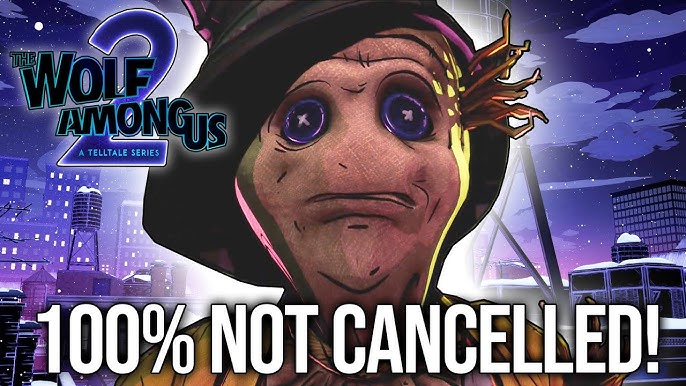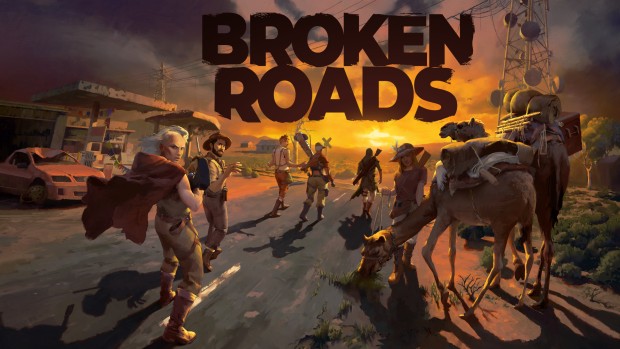The End of the Road for Episodic Games?

The gaming world held its breath for The Wolf Among Us 2. The trailers promised a dark and compelling return to Fabletown, but recent news has cast a long shadow. According to IGN, the Telltale Games layoffs [https://www.ign.com/articles/telltale-games-reportedly-shutting-down-major-layoffs] affected at least 225 employees, leaving the fate of the highly anticipated sequel uncertain. Seeing what happened at Telltale just hits different when you've been in the trenches of episodic development. It's more than just news; it's a punch to the gut. As a former narrative designer on Life is Strange at Dontnod Entertainment, I understand the passion, the long hours, and the creative risks that go into crafting these experiences. The Telltale Games layoffs are not just an isolated incident but symptomatic of the larger struggles faced by episodic adventure games on PC, jeopardizing a genre with unique storytelling potential.
The State of Episodic Games on PC: A Rocky History
The episodic adventure game on PC has always been a tightrope walk. The promise of a continuing narrative, delivered in installments, has captivated players, but the execution has often been fraught with challenges. The cancellation of Half-Life episodes [https://www.theverge.com/2020/3/26/21193051/half-life-3-valve-canceled-projects-gabe-newell] stands as a stark reminder of the genre's inherent instability. While games like Life is Strange and the early Telltale titles like The Walking Dead proved the potential for episodic storytelling, they also stand in contrast to the many episodic games that have stumbled, plagued by inconsistent quality, lengthy delays, or simply a lack of audience engagement.
Episodic games require a delicate balance. You're asking players to invest in a long-term story without the guarantee of a satisfying conclusion, and that's a huge risk, both for the developer and the player. This risk has only become exacerbated given the increased complexity and cost of modern game development.
Deep Dive: The Wolf Among Us 2 Development Status
The Wolf Among Us garnered a devoted cult following with its unique blend of neo-noir mystery and fairy tale reimagining. The prospect of revisiting Fabletown in The Wolf Among Us 2 generated significant buzz.

The trailers and development diaries [Insert URL to a relevant The Wolf Among Us 2 trailer or dev diary on YouTube] teased a darker, more mature experience. Bigby Wolf and Snow White were set to return, navigating a world steeped in secrets and danger. The gameplay demos highlighted the potential for deeper narrative choices, building upon the foundations of the original game. The community responded strongly with excitement at how the storytelling and gameplay was to evolve.
Now, the layoffs have plunged The Wolf Among Us 2 into uncertainty. Will the game ever see the light of day? What will become of the team's hard work? The trailers promised a darker, more mature take on the Fables universe. Now, all that potential is hanging in the balance. It's a tragedy for fans and a loss for the industry. The impact of Telltale layoffs on Wolf Among Us 2 development is perhaps the most visible symbol of a larger, systemic problem.
The Economics of Episodic Game Development: Unsustainable Models?
Why are episodic games struggling? The financial challenges are considerable. Unpredictable episode sales make budgeting difficult. Maintaining consistent quality across multiple episodes requires significant resources and talent. Long development times can lead to delays and decreased player interest.

Telltale's business model, which relied heavily on licensing popular IPs and releasing games on multiple platforms, may have contributed to their downfall. A business analysis of Telltale Games from a source like Gamasutra or GamesIndustry.biz [Insert specific article URL] would likely reveal the complexities of their financial structure. Were their licensing fees too high? Were they spreading themselves too thin across multiple projects?
The truth is, episodic games are expensive to make and risky to sell. You're constantly chasing the next episode's budget, and if one episode underperforms, the whole project can collapse. This episodic game economics becomes unsustainable when the initial hype fades.
Indie Game Survival After Telltale: Charting a New Course
What does the future hold for episodic adventure games on PC? Is episodic game development dead on PC? There are potential solutions for the genre's survival. Shorter development cycles could reduce costs and increase agility. Subscription models could provide a more stable revenue stream. Greater emphasis on replayability could extend the lifespan of each episode.

Kentucky Route Zero, which took a decade to deliver its full saga but managed to release in self-contained acts, offers a great example of this. This allowed the game to continuously get funding as each act released to support the full vision.
The future of episodic games depends on our support. If we want to see more unique and compelling stories on PC, we need to show developers that there's still a demand for them. Supporting narrative driven game development is critical.
Narrative Design Telltale Games Legacy: A lasting impact
Telltale's legacy on narrative gaming and interactive storytelling is undeniable. They popularized a formula that prioritized player choice and character-driven narratives. This narrative design Telltale Games legacy will inspire game developers for years to come. But what lessons can be learned from their downfall?

One of the most impactful Telltale games, The Walking Dead, is a testament to the power of choice driven games. The success of games such as The Walking Dead shows the clear potential of choice driven games. Games need to adapt to thrive.
Episodic PC Games Replayability: Extending the Value
One of the biggest criticisms of episodic games is their limited replay value. Once you've made your choices, what's left? Developers need to find ways to increase replayability to justify the investment for players.

Multiple branching narratives, hidden secrets, and achievements can all encourage players to revisit the game multiple times. Episodic PC games replayability can dramatically increase if they are coupled with mod support allowing the community to create and share their own stories and challenges.
Alternatives to Telltale Episodic Games for PC Gamers: Finding New Adventures
While the future of The Wolf Among Us 2 remains uncertain, there are still plenty of excellent narrative adventure games available on PC. From indie darlings to AAA experiences, here are some of the best alternative Telltale-style PC games:

- Oxenfree: A supernatural mystery with compelling characters and a unique dialogue system.
- Disco Elysium: A revolutionary RPG with unparalleled freedom of choice and a gripping narrative.
- Night in the Woods: A charming and poignant story about mental health and small-town life.
The Wolf Among Us Game Series: What Happens Next?
The question on everyone's mind is: will The Wolf Among Us 2 ever be released? The current development status is unknown, but hope remains. Perhaps another studio will pick up the project, or maybe Telltale will find a way to revive it in the future. The Wolf Among Us Game Series is a great example that can be brought up again and again for episodic storytelling.

Regardless, the series has made a lasting impact on the gaming landscape.
Support Indie Developers After Telltale Games Layoffs: Investing in the Future
The Telltale layoffs highlight the importance of supporting indie developers who are pushing the boundaries of narrative gaming. These studios often take risks and experiment with new ideas, creating unique and memorable experiences. By supporting them, we can help ensure that the future of episodic adventure games remains bright.

Support indie developers after Telltale Games layoffs by:
- Buying their games.
- Following them on social media.
- Donating to their crowdfunding campaigns.
- Spreading the word about their work.
The Future of Episodic Games: Adapt or Perish
The episodic model faces significant challenges, but it's not necessarily doomed. What are the next steps to take to ensure the success of future episodic series? By focusing on replayability, sustainable business models, and a commitment to quality, developers can ensure that episodic adventure games continue to thrive on PC.

Conclusion: A Call to Action for Gamers
The Telltale Games layoffs serve as a wake-up call. If we want to continue enjoying unique, narrative-driven games on PC, we need to actively support the developers who are committed to creating them. Buy their games, spread the word, and let them know that their work matters. The future of episodic games depends on it. Support new indie episodic PC games, as they will drive the next era of storytelling on PC!